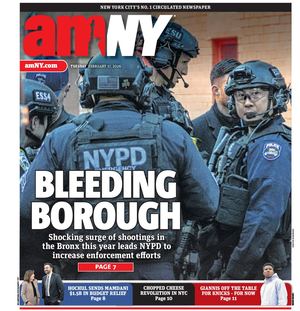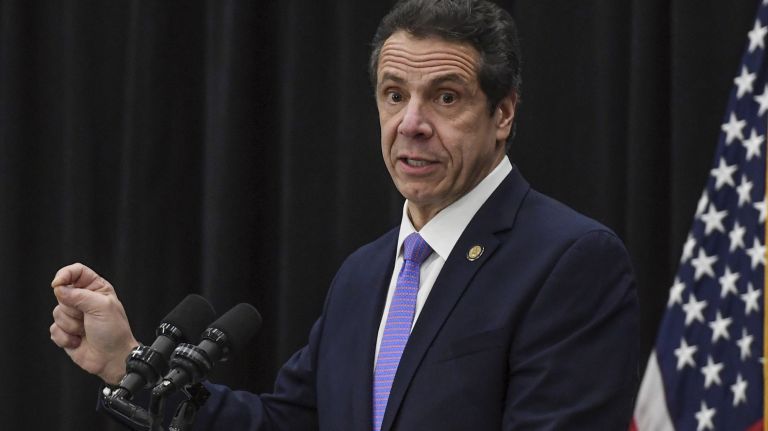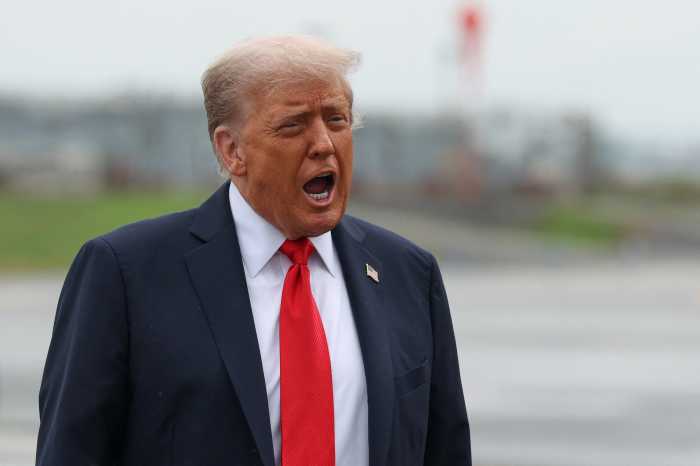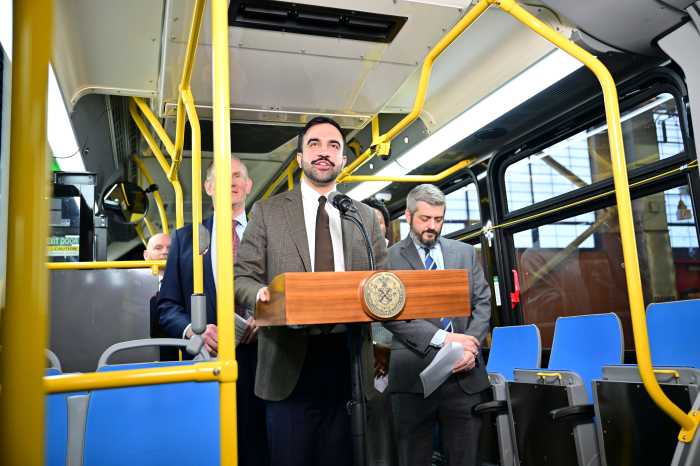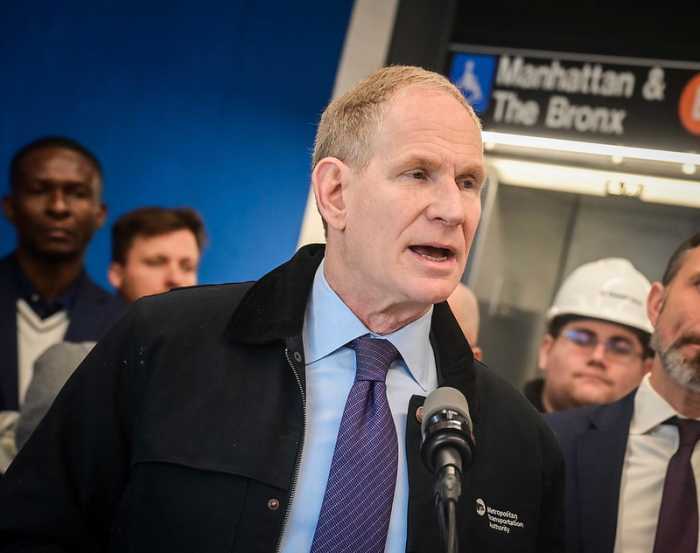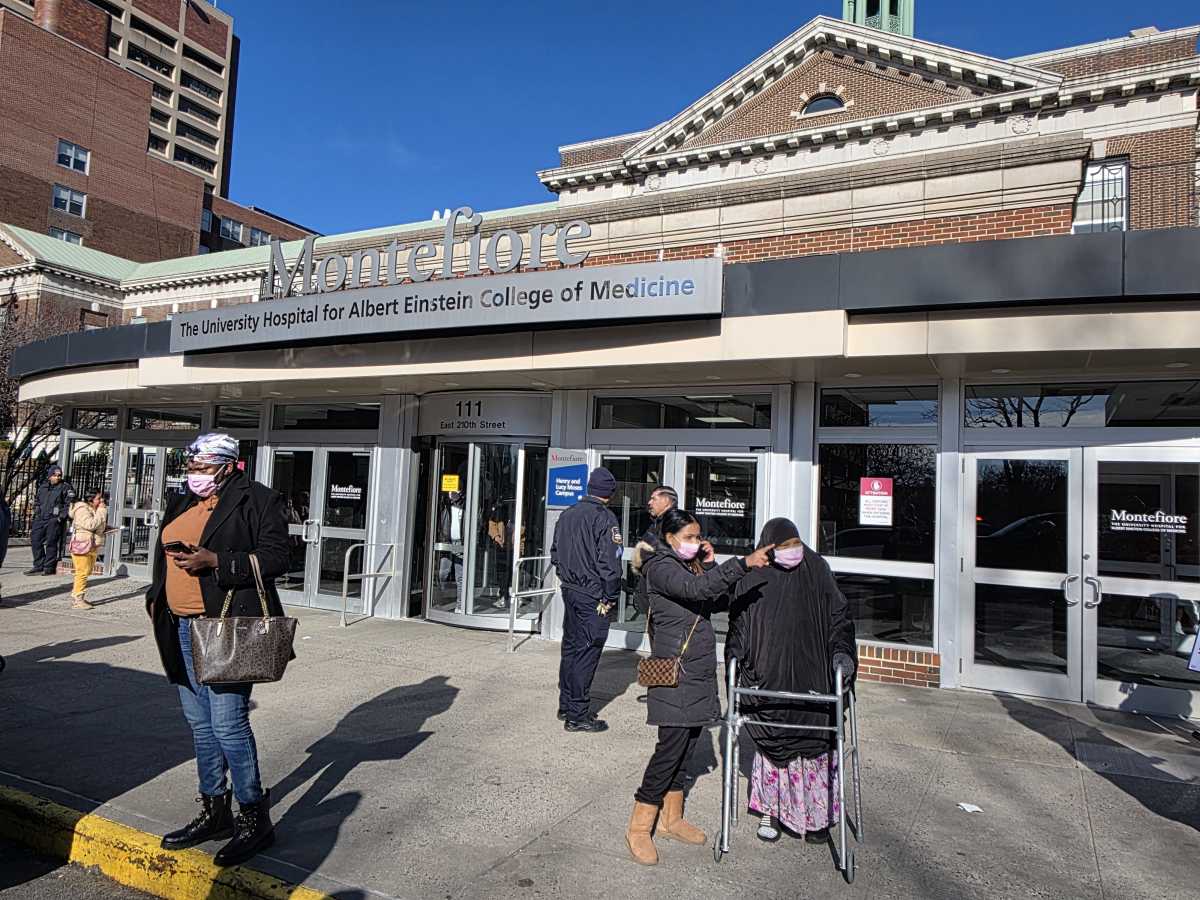
It’d be the end of the (funding) line.
Gov. Andrew Cuomo insisted Wednesday the state would cease its financial contributions to the city’s subway and bus network should the city take over the system.
Cuomo made the remarks during a radio appearance Wednesday morning in response to City Council Speaker Corey Johnson, who the day before unveiled his proposal for municipal control of the MTA’s subways, buses and bridges.
“Why hasn’t a mayor taken it over? There are about 10 billion reasons — and that’s the 10 billion dollars the state gives to the MTA, primarily the New York City Transit Authority, between operating and capital,” Cuomo, said on WAMC. “If New York City took it over — they take it over, they don’t get the $10 billion in state funding.”
“It’s yours, you pay for it,” added Cuomo, who effectively controls the MTA, a state authority.
Johnson issued a statement Wednesday evening in response to Cuomo’s comments, saying “As to those $10 billion reasons, New York City taxpayers and subway and bus riders are the ones who fund the lion’s share of the MTA already — the problem is we get no control in return. New York City is the economic engine of the state … We deserve control over how our money is spent and how our mass transit system is managed.”
Johnson tapped the criticism Cuomo has faced for years as subway service has spiraled into a reliability crisis, arguing during his State of the City address on Tuesday that there was no accountability or transparency at the authority and that giving the mayor full control of the subways and buses would put one person clearly on the line. His proposal came with a 104-page report detailing a takeover, which remains a long shot considering its contingencies.
“Do you know the real reason our commute is awful? Because the MTA exists in a vacuum of accountability,” Johnson said during his speech. “But it doesn’t have to be that way. We can fix this. It all starts with control.”
City residents, workers and businesses already contribute about 70 percent of the MTA’s operating budget via taxes, fares, fees and surcharges, which reaped $10 billion toward the MTA’s roughly $14 billion operating budget in 2014, according to a City Comptroller report.
Watchdog groups like Reinvent Albany take issue with the governor’s funding claims. The group criticized Cuomo and the state last month for not yet providing the MTA with $7.3 billion of the roughly $8 billion it pledged years ago for the authority’s $32 billion capital plan for 2015 to 2019.
Johnson also attacked the state on Tuesday for diverting MTA funds, and using the authority as a “piggy bank.”
“We haven’t seen the $7.3 billion, so for the state to say they’ve given that money to the MTA is disingenuous,” said Rachael Fauss, of Reinvent Albany. “If you look at the actual cash-on-hand it’s less than a billion dollars; the city has given more.”
Morris Peters, of the state’s Division of Budget, however, said the state has indeed appropriated and already made available $6.9 billion. The Fiscal Year 2020 Executive budget, he said, “includes an additional $1.5 billion, which will bring the total up to the level that satisfies the state’s commitment towards the 2015-2019 capital plan.”
Johnson proposed partially financing capital and operational expenses for a city-controlled transit system, which he dubbed Big Apple Transit, or BAT, via congestion pricing and city-levied new taxes — which would require state authorization — paired with labor and construction reforms. His proposal, for instance, includes raising the general corporation tax and unincorporated business tax as well as doubling the payroll mobility tax on employers.
Johnson’s plan also assumes that the city, state and federal government would maintain their portions of capital contributions should the city take over the system. The city, for its part, contributed about $2 billion to the MTA’s current capital plan.
While elements of Johnson’s plan would need to be approved by state lawmakers, Cuomo said the city at any time could take over the subway system — as long as it gives the MTA a year’s notice. The city currently owns the system and leases it to the authority to operate.
“You want to own it? It’s yours,” Cuomo said. “God bless America.”
